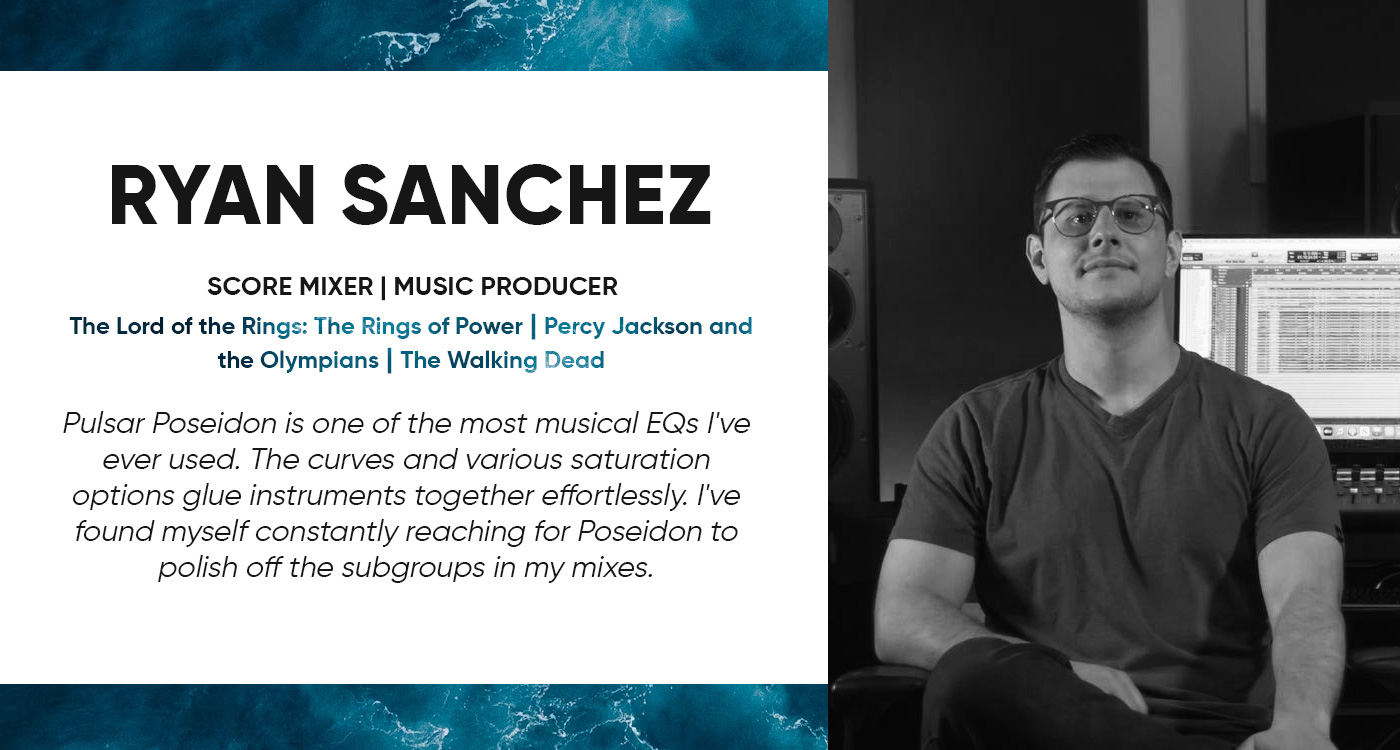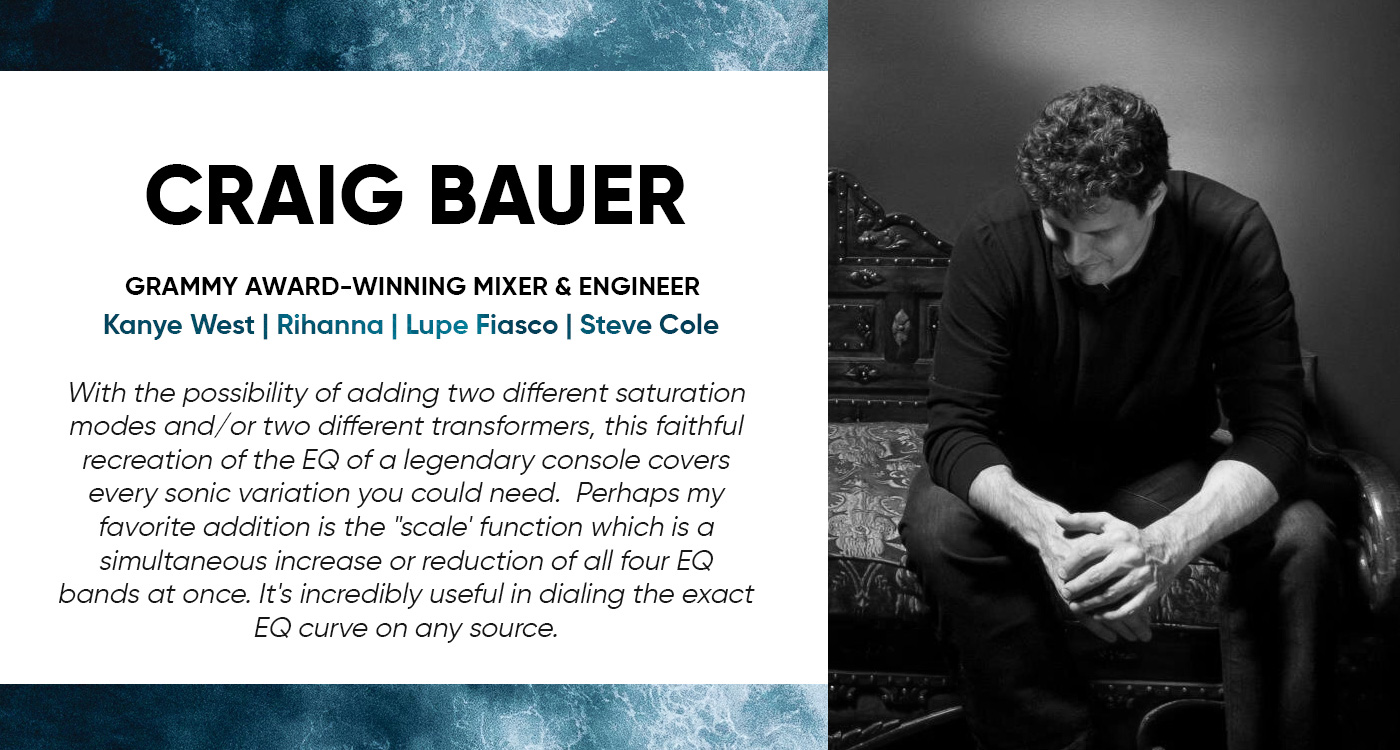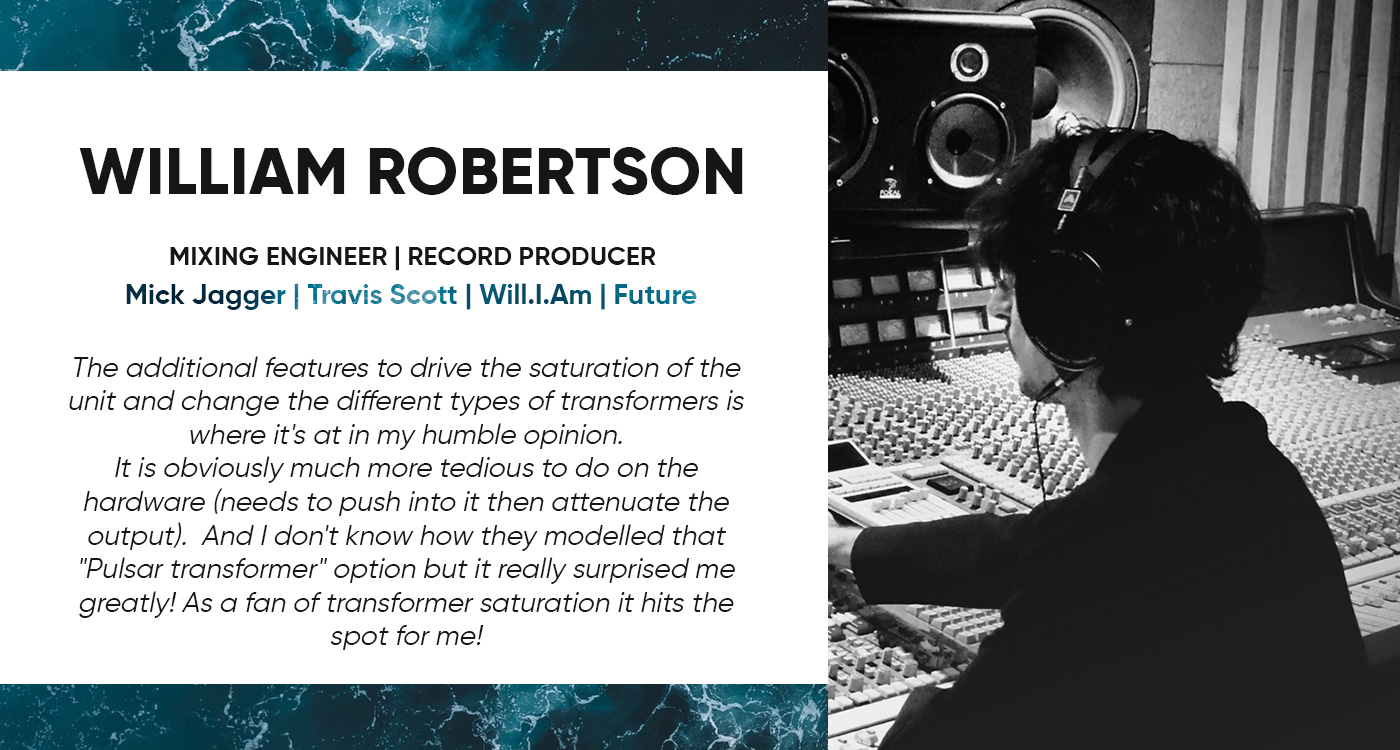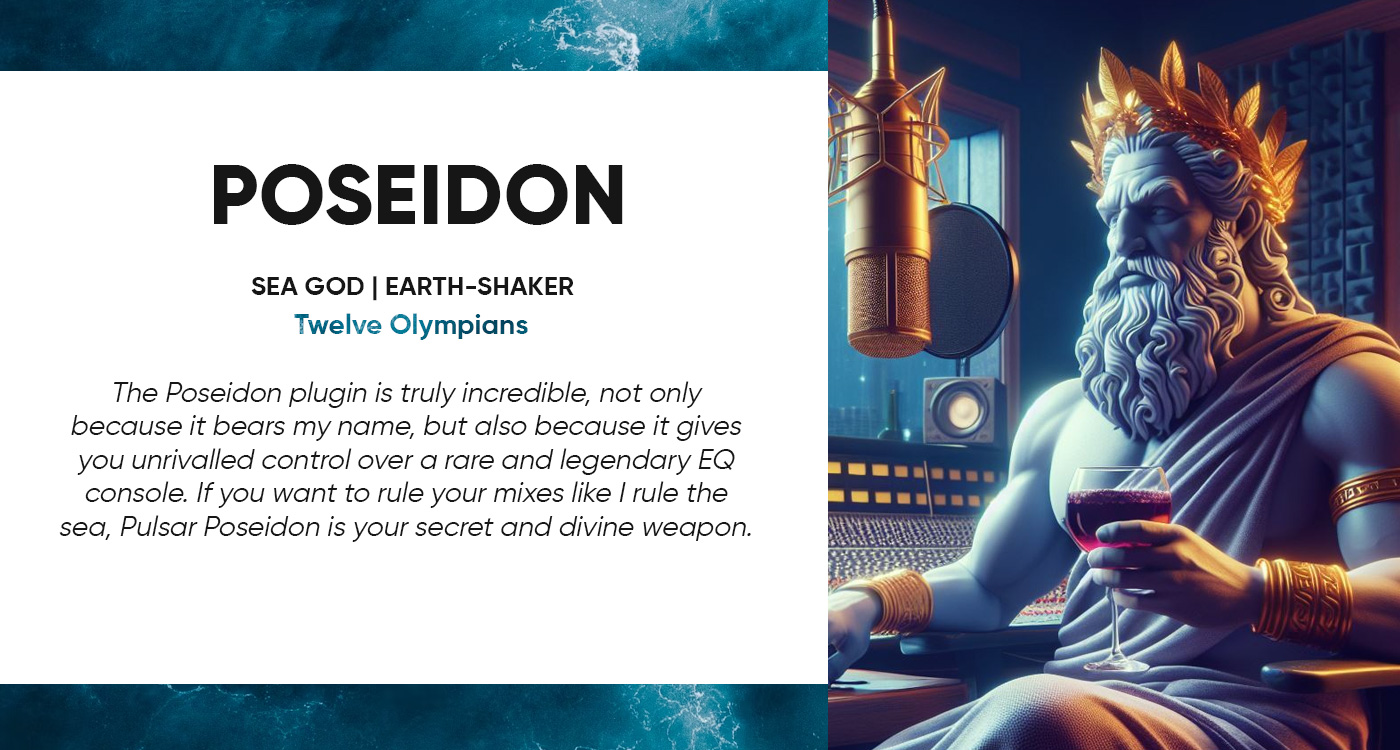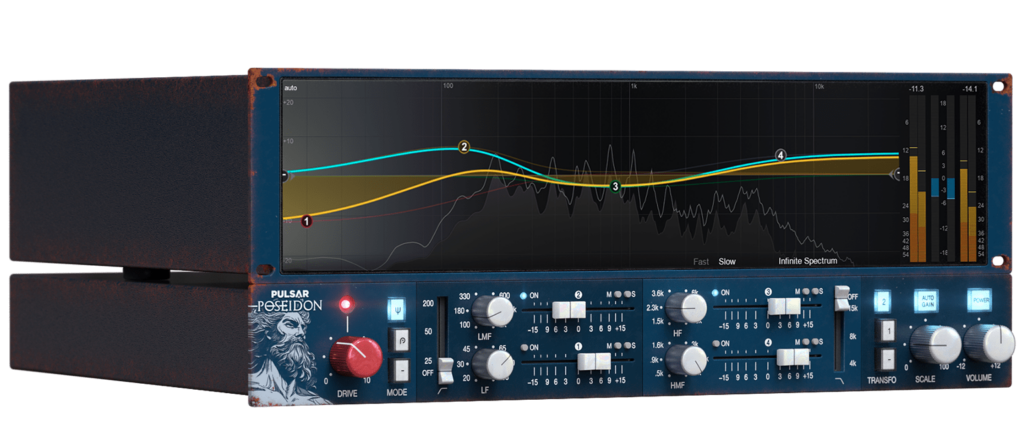




POSEIDON

A wild EQ modeled after a rare and mythic console
turned
into an easy-to-use modern tool.
A wild EQ modeled after a rare and mythic console turnedinto an easy-to-use modern tool.
CONTROL THE BEAST
Ask an engineer for a shortlist of EQs that make their eyes and ears sparkle, and they’ll probably mention an inductor-based design with a nautical name that conjures up images of the god Poseidon. The EQ section of this rare and legendary console made the sound of records you might have grown up with: Queen, The Beatles, David Bowie, The Rolling Stones… Let’s just say it’s “tried and tested”.
Present in very few studios, this console is renowned for being highly musical. One key component behind its mojo is its unique band interactions – pushing the gain of one band can lead to EQ curves that would need three or four bands on a parametric EQ.
With such an idiosyncratic EQ, there’s a learning curve. The interactions between its bands are so unique that we’ve never seen a digital reproduction that makes them simple to use. So we decided to nail it ourselves with an on-screen EQ curve that reacts faithfully to the quirks of the original hardware, making Pulsar Poseidon easy to master.
With all its additional features (Mid/Side bands, Gain Scale, Auto-Gain, multiple saturation colors), this plugin (VST/VST3/AU/AAX) faithfully resurrects the rare and iconic qualities of this console EQ into the digital realm.
CONTROL THE BEAST
Ask an engineer for a shortlist of EQs that make their eyes and ears sparkle, and they’ll probably mention an inductor-based design with a nautical name that conjures up images of the god Poseidon. The EQ section of this rare and legendary console made the sound of records you might have grown up with: Queen, The Beatles, David Bowie, The Rolling Stones… Let’s just say it’s “tried and tested”.
Present in very few studios, this console is renowned for being highly musical. One key component behind its mojo is its unique band interactions – pushing the gain of one band can lead to EQ curves that would need three or four bands on a parametric EQ.
With such an idiosyncratic EQ, there’s a learning curve. The interactions between its bands are so unique that we’ve never seen a digital reproduction that makes them simple to use. So we decided to nail it ourselves with an on-screen EQ curve that reacts faithfully to the quirks of the original hardware, making Pulsar Poseidon easy to master.
With all its additional features (Mid/Side bands, Gain Scale, Auto-Gain, multiple saturation colors), this plugin (VST/VST3/AU/AAX) faithfully resurrects the rare and iconic qualities of this console EQ into the digital realm.
CONTROL THE BEAST
If you ask an engineer for a shortlist of EQs that make their eyes (and ears!) sparkle, he’ll probably mention a model with a nautical name that conjures up images of the god Poseidon – the EQ of a rare and legendary console that made the sound of records you might have grown up with : Queen, The Beatles, David Bowie, The Rolling Stones, and so on.
Present in very few studios, the inductor based EQ design of this console is renowned for being highly musical and exhibits unique band interactions vastely responsible its mojo. In fact, pushing a gain can lead to EQ curves that would need 3 or 4 bands on a parametric EQ.
But the EQ of this console is also renowned for it’s steep learning curve. The EQ bands interactions are so unique, that every other reproduction of these channel strips fails to propose a modern and usable workflow. To the contrary, thanks to its on-screen curve editing, Pulsar Poseidon is straightforward to master.
With all its additional features (M/S, Gain Scale, Auto-Gain, multiple saturation colors), this plugin (VST/VST3/AU/AAX) faithfully resurrects the rare and iconic qualities of this console EQ into the digital realm and offers many new features.
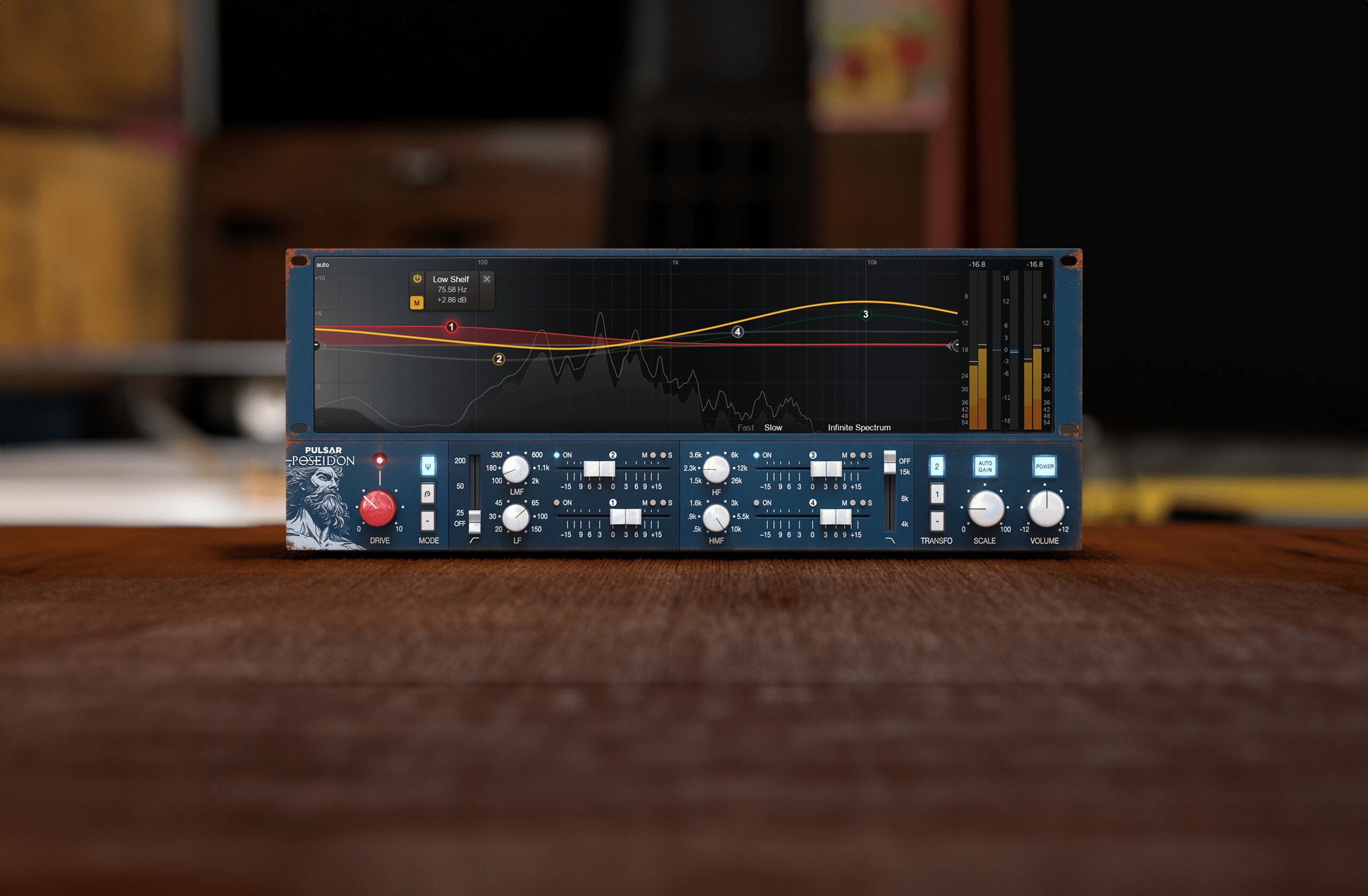
IMPROVED WORKFLOW
Pulsar Poseidon delivers the distinctive character of an industry legend – with modern features to quickly master this one-of-a-kind EQ.
EXTENDED RANGES FOR MODERN NEEDS
While the original machine is highly appreciated for its carefully chosen discrete frequencies, we made the frequency knobs continuous and extended their ranges to match modern needs. Back then, a peaking EQ down to 100Hz would have required fist-sized inductors.

Complete Control with CURVE EDITING
Understand how each band or filter shapes the sound with a complete on-screen curve editor and spectrum analyzer. This best-of-both-world approach will give you an interesting insight into what you’re doing with a better workflow.

Enhanced versatility
As usual, we’ve added Mid-Side processing for more control on your stereo image, a Gain-Scale knob to help you reach the sweet spot on your EQ intensity, and an Auto-Gain feature to keep the output level consistent with the input.
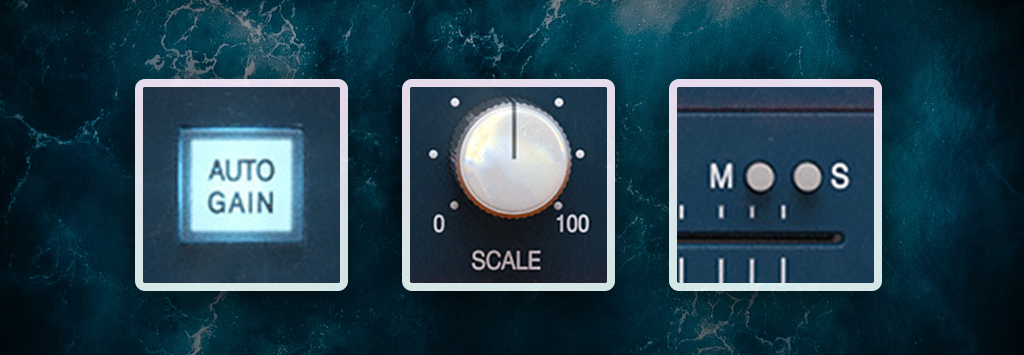
several saturation COLORS
Add rich analog distortion to your sources with multiple saturation circuits, including that of the original unit, which is well-known for the tonal color of its preamps. In addition, we’ve introduced two output transformer emulations to add low-end harmonics.

PRECISE MODELING OF BAND INTERACTIONS
We have faithfully recreated the interaction between the bands of the original unit. The shape of one filter depends on the settings of the others, so you get asymmetrical bells and exotic curves. In Pulsar Poseidon, these creative EQ shapes are finally visible and easy to use.
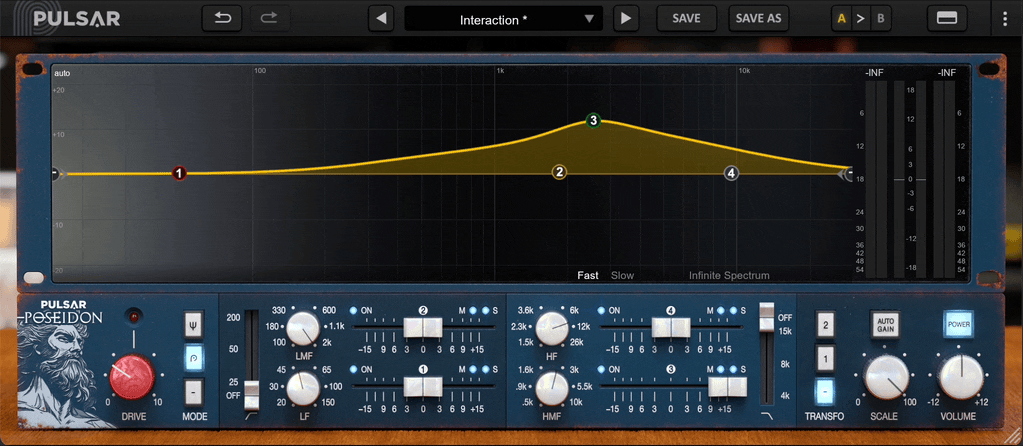
Listen for yourself
Acoustic Guitar
As the human ear is very sensitive to spectrum and phase manipulation on acoustic sources, Pulsar Poseidon, with its smooth equalization curves and phase alterations, is the ideal tool for shaping the tone of this type of source with a natural and pleasent result.
Synthesizer
Poseidon can also be used as a sculpting tool for rich sources like synth pads or arpeggios. Use it creatively, experiment with extreme curves, and drive it hard – you won’t have to work hard to get great results.
Electric guitar buss
This EQ is world-renowned for its awesome performance on electric guitar busses. Its asymmetrical bell-shaped filtering patterns, due to the interaction between bands, will allow it to sculpt this dense audio material in a radical and natural way, for a unique result - soft or biting, the result will always remain musical.
Drums
Thanks to its Mid/Side routing selector on each band, Pulsar Poseidon excels at adding focus and punch to the most important elements of your drum buss (typically your kick and snare !) while bringing out the ambiance in a natural and elegant way.
Electric bass
With its extended frequency range compared to the original machine, and the addition of saturations and transformers, Pulsar Poseidon lets you add a singular color to a dull electric or electronic bass, with the snap of a finger.
Features | Original Hardware | 🔱 Pulsar Poseidon 🔱 |
|---|---|---|
Unique filter frequency responses | ||
Iinteractions between bands | ||
Transformers for bass enhancement | ||
Saturation options | ||
On-screen curve editing | ||
Continuous band frequencies | ||
Extended frequency ranges | ||
Spectrum analyzer and metering section | ||
M/S Routing | ||
Auto-Gain |
SEE THE DIFFERENCE
Features | Original Hardware | Competitor plugins | 🔱 Pulsar Poseidon 🔱 |
|---|---|---|---|
Unique filter frequency responses | |||
Interactions between bands | |||
M/S Routing | |||
Transformers for bass enhancement | |||
Saturation options | |||
On-screen curve editing | |||
Continuous band frequencies | |||
Extended frequency ranges | |||
Spectrum analyzer and metering section | |||
Auto-Gain | |||
Gain Scale |
“A” Long story short
These consoles have a unique history. They were designed by Malcom Toft, Barry Porter, and among others, producer Roy Thomas Baker (Queen, The Cars, Devo). But more importantly, these consoles emerged at a particular moment in history when mixers and electronic engineers worked hand in hand, in an almost artisanal manner, to create tools exactly suited to their needs. The preamps are entirely Class A and discrete, designed as clones of the Revox A77. Initially, they were supposed to be equipped with Marinair LO10468 input transformers, the same transformers as the mythical Neve 1073 (indeed, all the Neve 10-series).
However, between design and industrialization, Neve had already purchased the entire stock of transformers available from Marinair, so they had to look for an alternative while having to make a few modifications to the circuit in the process. Zutt transformers were finally used. Later, some units were also equipped with Jensen transformers. For a little story, the Lenny Kravitz desk, when in New York City, was upgraded from Zutt to Jensen mic pre-transformers due to the radio interference caused by the NYC train system!
The magic of your childhood hits
For the EQs, some simple but smart choices were made to keep the noise floor as low as possible. One cool trick was placing two parallel peaking EQs with minimal decoupling between bands, which helps keep output impedance low. This lovely serendipity made these EQs great because of the musicality of the resulting band interactions. A secret EQ formula that positively contributed to countless hit records, resulting in a rich and dense timbre.
A few bands who recorded on this console include Queen, The Beatles, Metallica, David Bowie, The Rolling Stones, Elton John…
Thanks to the Pulsar Audio “savoir-faire,” you can now experience and bring back the unique sonic signature behind the records that shaped music history – all with an up-to-date interface and features to integrate and tame this beast inside your DAW.
Get Poseidon Today
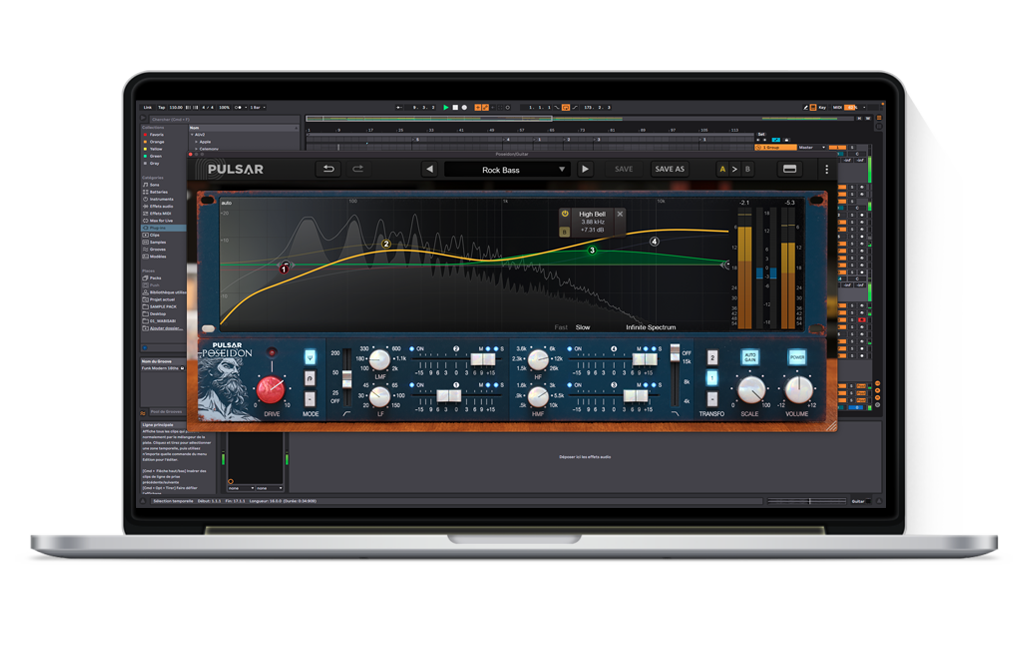
Every Pulsar plugin comes with:
- Lifetime license, no subscription required
- Free lifetime updates, no additional fees
- Top-tier customer support
FEATURES
SYSTEM REQUIREMENTS
DOWNLOADS
FEATURES
Main Features
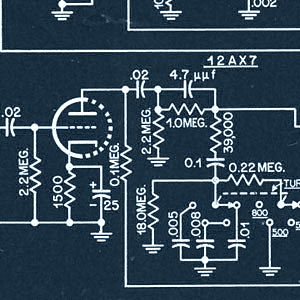
Topology Preservation Technology
Our modelling technology guarantees a perfect emulation of the original device’s behavior. From the saturation of diodes, transistors or tubes, to the slight internal filterings, to the tiny calibration defects, everything is perfectly reproduced. What's more, we can reproduce all these behaviors without going through a complete simulation of the circuit, thus saving CPU power.
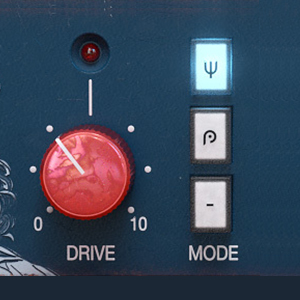
Saturation stage
Push the signal further with one of two saturation circuits and adjust the processing strength using the Drive knob. The first mode faithfully emulates the analog circuitry of the console that inspired this plugin, while the second is a Pulsar Audio creation featuring a slightly more modern and aggressive character.

Modern EQ Edition
Manipulate a peculiarly shaped analog EQ curve in an intuitive way. The curve editor is extremely easy to use, with a clear and concise overall frequency response display. You can edit all properties of any filter without touching the lower panel.
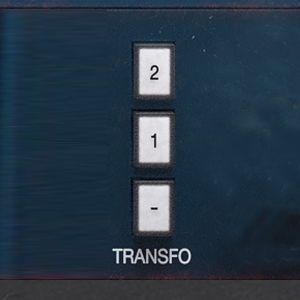
Output Transformer
The analog circuit of the original console channel had no output transformer. Pulsar Poseidon offers two additional options: an output transformer inspired by the Marinair models used in old Neve preamplifiers, and an original transformer algorithm optimized for the enhancement of low-end harmonics

Mid-Side processing
Each band can be used on the entire stereo signal, or switched into operating with a single focus: the Mid only, to process monophonic, centered audio or the Side only, to process stereo, non-centered audio.
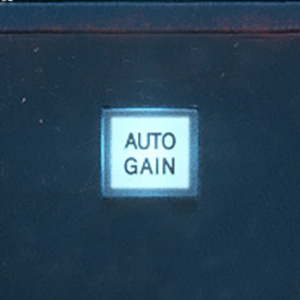
Auto-gain
This control compensates for volume changes introduced by equalization, keeping output level consistent with input. It uses a C-Weighting-based algorithm to introduce a level compensation based on EQ curve analysis. The compensation gain applied only depends on your EQ settings and won’t change during playback.

Metering & Spectrum analyser
The on-screen analyzer displays the audio spectrum in real-time (fast and slow window settings) or over the long-term with the Infinite Spectrum setting. In addition, peak metering provides insight into overall dynamics, and RMS meters let you monitor loudness and level matching. An overall gain meter is also available.
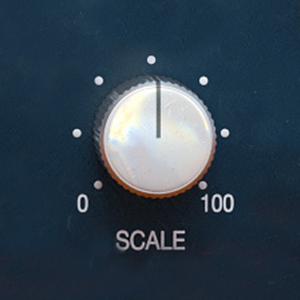
Gain scale
For wholesale reduction or increases in gain, the Gain Scale control lets you accentuate or reduce an entire EQ curve, acting like a multiplier for all bands’ gain settings.

Oversampling
A selectable oversampling mode is available for computers that can handle it, with processing at rates up to 384 kHz. You can choose for higher oversampling settings to be applied at export than at playback.

Smart GUI
Pulsar Poseidon comes all wrapped up in a responsive and resizable interface. A resize handle enables you to choose the perfect size for each use case, from nice and compact to highly visible.
SYSTEM REQUIREMENTS
System Requirements
CPU
- Intel Core i3 / i5 / i7 / i9 / Xeon or AMD Quad-Core minimum
Memory
- 4 GB RAM
- 1 GB free disk space
Operating System
- Windows 7 with SP1 64 bit
- Windows 8.1 64 bit
- Windows 10 64 bit
GPU
- OpengGL 2.0 compatible GPU
Monitor
- Resolution: minimum 1024x768, recommended 1920x1080
- Refresh rate: 60 Hz
CPU
- Intel Core i3 / i5 / i7 / Xeon / Apple Silicon (M1, M2, M3, M4)
Memory
- 4 GB RAM
- 1 GB free disk space
Operating System
- MacOS 10.11 or later
GPU
- OpengGL 2.0 compatible GPU
Monitor
- Resolution: minimum 1024x768, recommended 1920x1080
- Refresh rate: 60 Hz
Compatible plugin formats

AAX Native
Windows: 64 bits only
Mac: 64 bits only

Audio Unit
64 bits only

VST 2.4
Windows: 64 bits only
Mac: 64 bits only

VST 3
Windows: 64 bits only
Mac: 64 bits only
DOWNLOADS
Downloads
Our software is protected with PACE Anti-Piracy, so you will need an iLok account to use it. On Windows, our installers will automatically install the iLok License Manager on your computer. You can find additional information and support on the PACE iLok website.
VIDEOS
Poseidon Trailer
Feature Overview
FREE Full-feature 14-day trial
These installers set up the complete plugin version and allow to start a full-featured 14-day trial period.
More plugins

Echorec & Primavera Bundle
Two faithful analog delay/reverb emulations, enhanced to create a go-to chain for adding color and texture to your tracks.

8200
The paragon of EQs, reinvented. Precise, transparent & versatile, Pulsar 8200 is the superstar EQ of your master bus.
